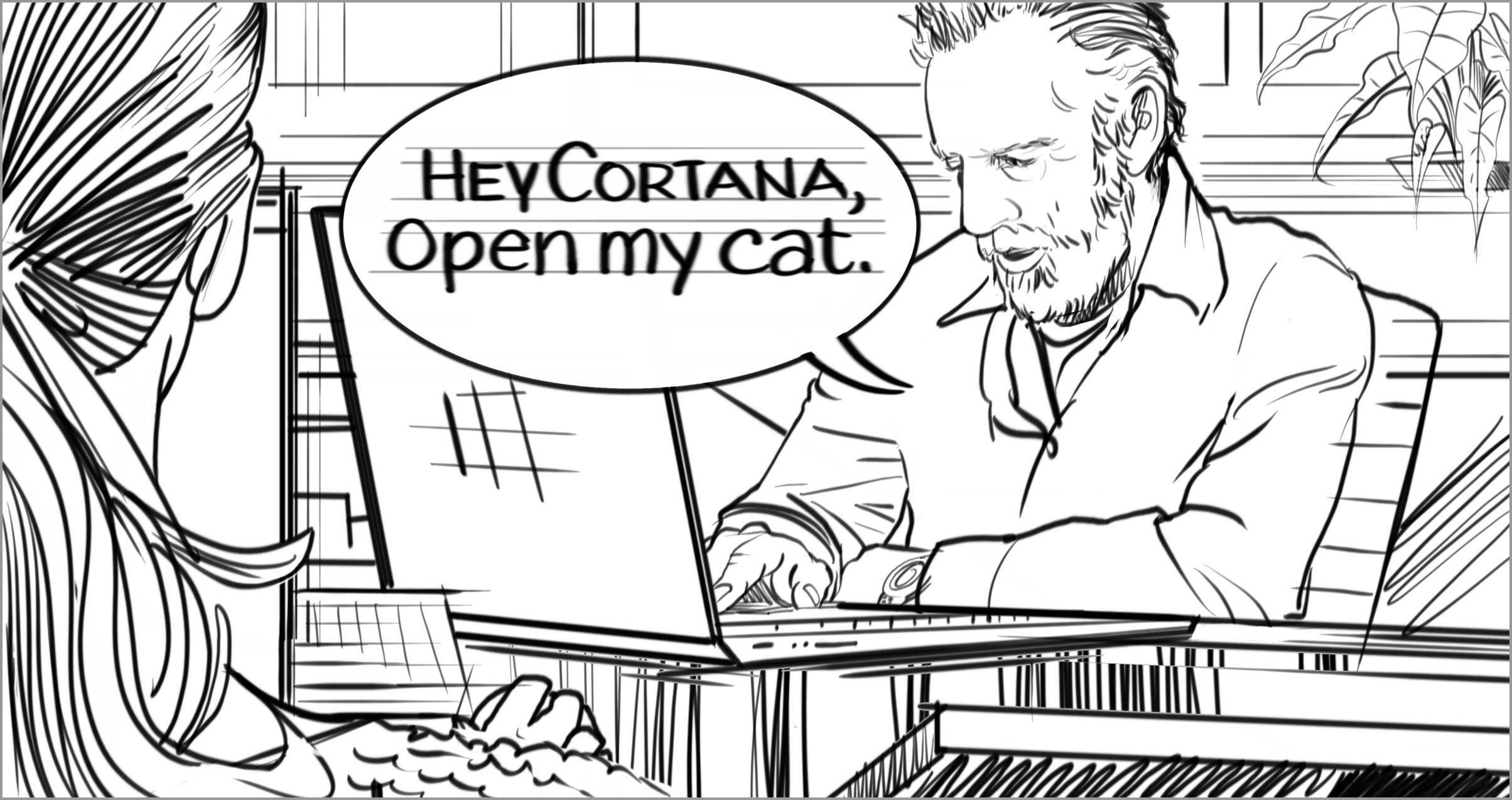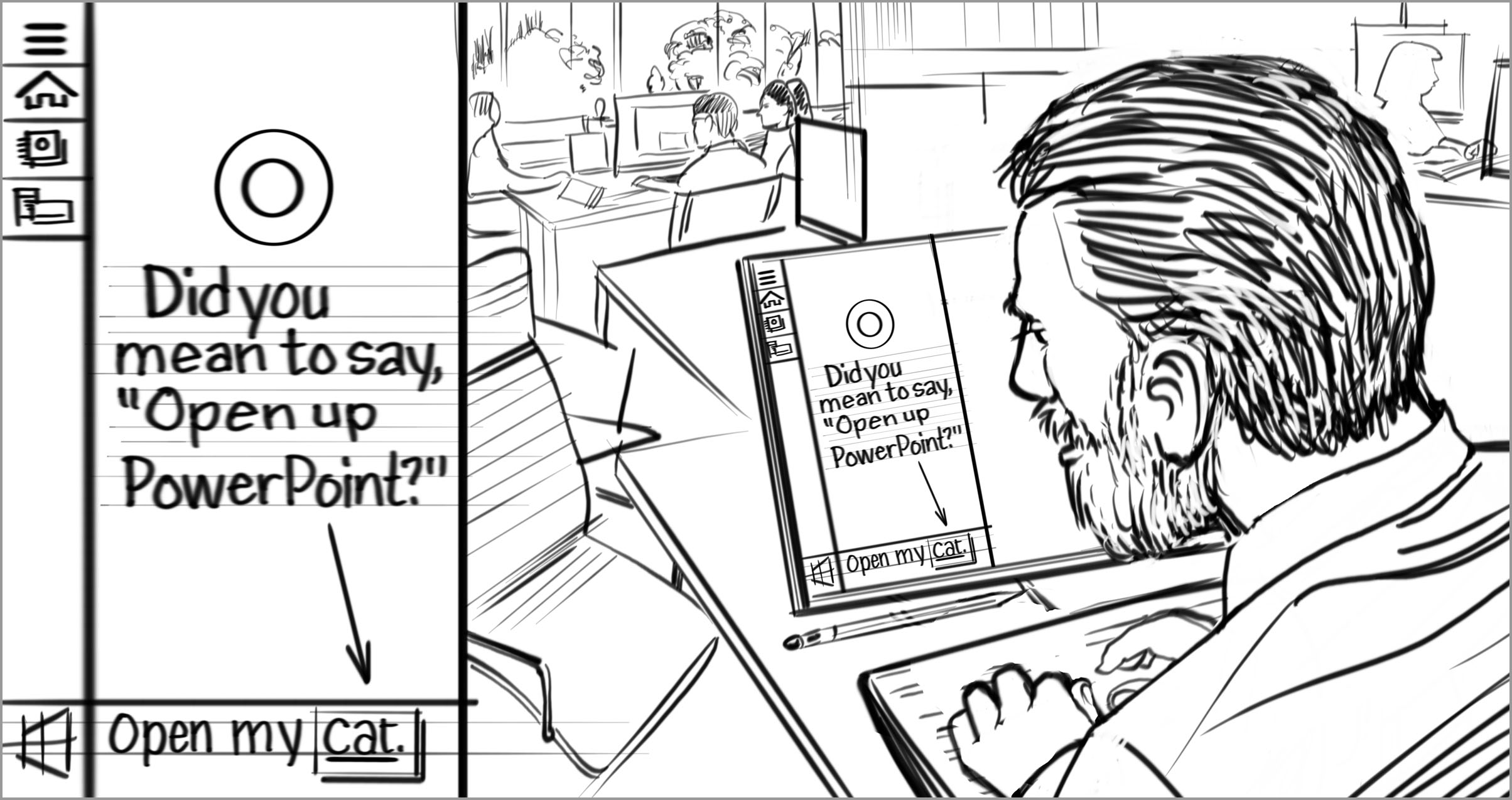Note
Access to this page requires authorization. You can try signing in or changing directories.
Access to this page requires authorization. You can try changing directories.
Difficulty producing language (spoken or written).
A person with expressive aphasia may have difficulty producing speech fluidly, or at all. Finding the right words to say and pronouncing them correctly can be difficult for someone with expressive aphasia. It's important to note that often expressive aphasia doesn't impact a person’s cognition or intelligence—it only affects their ability to express what they want to say. A person with aphasia may use important content words but might leave out words that provide grammatical context such as prepositions or articles. While the intent of what a person with aphasia says can be understood by another person, the use of incorrect grammar may cause difficulty when using voice recognition or voice command programs.
Often, injuries that cause aphasia co-occur with symptoms such as paralysis and other mobility limitations, making the ability to communicate through voice even more important. Aphasia is often a result of a stroke or a brain injury.
Barriers
- Language as the only means of completing a task (for example, when voice activated commands are the only means of interacting with the interface)
- Experiences that aren’t forgiving when someone uses unintended words (such as when Cortana has difficulty understanding someone who repeats the same word twice or uses the wrong word—or when Cortana stops listening and begins talking before the person can find the words to complete their sentence)
Facilitators
- Word prediction
- Options for completing tasks without producing language or writing (for example, multiple choice check boxes with options already prewritten)
- Ability to prolong listening time while giving voice commands (for example, interaction with Cortana)
- Voice command-based experiences that are forgiving when someone uses unintended words
Examples

BARRIER — Unintentional word choices can be common following a stroke or brain injury. Experiences that aren’t forgiving of errors can exclude a person from using speech recognition.

FACILITATOR — When a device detects an error in speech or word choice, it gives helpful prompts to correct them.
The purpose of this reference is to provide concepts people can use to document and discuss aspects of function. Design should happen with people with disabilities, this reference is meant to support that activity, not replace it.